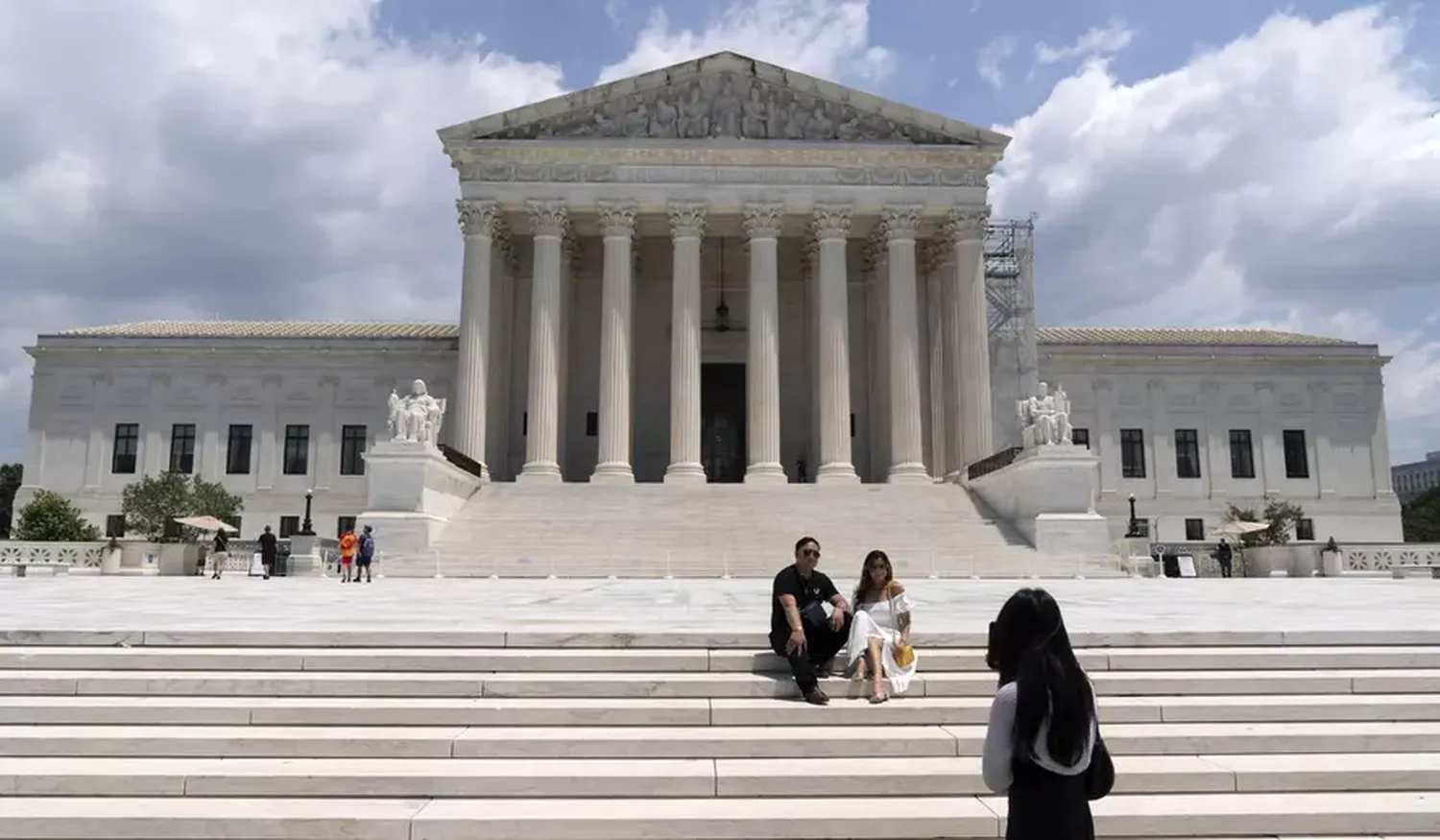Washington Couple's Offshore Earnings
Supreme Court Upholds Trump-Era Tax on Foreign Investments
The couple was required to pay taxes on their proportional share of the company's earnings accumulated from 2006 to 2017
Washington, D.C. — In a significant ruling on Thursday, the United States Supreme Court upheld a controversial tax on foreign investments, marking a pivotal moment in the ongoing debate over the taxation of unrealized income. The 7-2 decision in the case of *Moore v. United States* has far-reaching implications for U.S. tax policy and the potential future of wealth taxation.
The case revolved around Charles and Kathleen Moore, a couple from Washington state, who challenged a $15,000 tax bill imposed under the Mandatory Repatriation Tax (MRT) provision of the 2017 Tax Cuts and Jobs Act (TCJA). The Moores had invested $40,000 in KisanKraft, an India-based agricultural equipment company, in 2006. Despite not receiving any dividends or distributions from their investment, the couple was required to pay taxes on their proportional share of the company's earnings accumulated from 2006 to 2017.
The Moores argued that the MRT constituted a tax on unrealized income, which they claimed was unconstitutional under the 16th Amendment. The amendment grants Congress the power to tax incomes, but the Moores contended that income must be realized to be taxable. They maintained that since they had not received any direct payment from their investment, the tax was invalid.
Justice Brett Kavanaugh, writing for the majority, rejected the Moores' argument, stating that the MRT was a tax on income realized by the corporation, which could be attributed to its shareholders. Kavanaugh emphasized that longstanding precedents and congressional practices supported the constitutionality of such taxes. "This Court's longstanding precedents, reflected in and reinforced by Congress's longstanding practice, establish that the answer is yes," Kavanaugh wrote.
The decision was met with mixed reactions. Proponents of the ruling argue that it preserves the government's ability to tax foreign-held profits, even if those profits remain undistributed. They contend that the ruling closes loopholes that allowed shareholders to evade taxes on offshore earnings. Critics, however, warn that the decision could pave the way for more aggressive taxation policies, including potential wealth taxes.
Justice Clarence Thomas, joined by Justice Neil Gorsuch, dissented, arguing that the tax violated the 16th Amendment. Thomas contended that the Moores were being taxed on an investment that had not yielded them any income. "Since the Moores never actually received any of their investment gains, those unrealized gains could not be taxed as 'income' under the Sixteenth Amendment," Thomas wrote.
The ruling has significant implications for U.S. tax policy. Legal experts suggest that the decision could influence future cases involving the taxation of unrealized gains and the broader debate over wealth taxes. Some observers believe that the ruling may embolden lawmakers to pursue more ambitious tax reforms targeting the wealthiest Americans.
The Biden administration, which defended the tax provision, hailed the decision as a victory. The administration had argued that invalidating the tax could result in substantial financial repercussions, potentially leading to hundreds of billions of dollars in lost tax revenue. The MRT was projected to generate approximately $340 billion over a decade.
The case also attracted attention for its potential impact on other tax provisions. During oral arguments, justices expressed concerns about the broader implications of a sweeping ruling. Kavanaugh's opinion sought to address these concerns by emphasizing the narrow scope of the decision. "We do not address or resolve any of those issues here," Kavanaugh stated.
The ruling underscores the complexities of tax law and the role of the Supreme Court in shaping the contours of the U.S. tax system. It also highlights the ongoing debate over wealth inequality and the limits of the government's power to address it through taxation.
As the dust settles on this landmark decision, stakeholders from various sectors will be closely monitoring its impact on future tax policies and the broader economic landscape. The *Moore v. United States* case serves as a reminder of the intricate balance between legislative authority and constitutional constraints in the realm of taxation.

